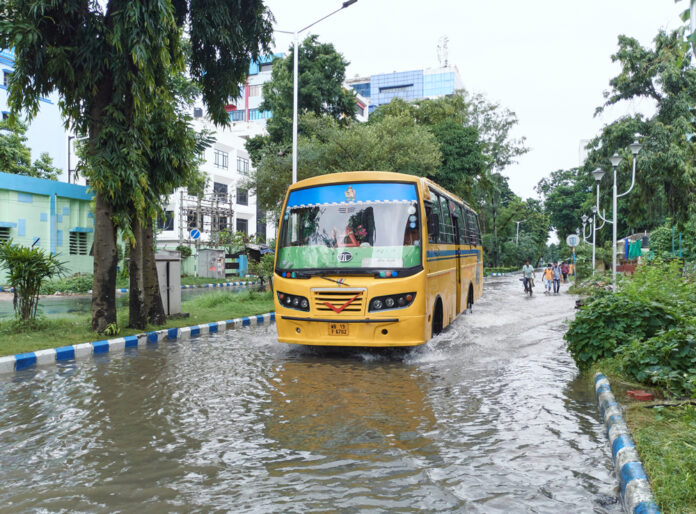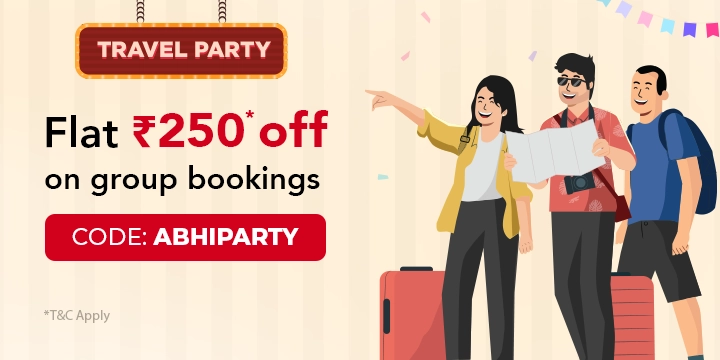Table of Contents
ToggleMonsoon Travel Challenges
The monsoon season in India, typically spanning from June to September, transforms the landscape into a lush, green paradise. However, it also brings along a host of travel challenges that can dampen even the most well-planned trips. From heavy rainfall and flooded roads to landslides and humidity, travelers need to be well-prepared to navigate these obstacles. In this blog, we will explore common monsoon travel challenges and provide practical tips on how to overcome them.
Also Read: Tips for Enjoying Off Season Travel
1. Planning and Preparation
Research and Plan Ahead
- Check weather forecasts and plan your trip during periods of expected lighter rainfall.
- Choose destinations known for better infrastructure and lesser susceptibility to heavy rains and floods.
Packing Essentials
- Waterproof bags or backpacks to keep your belongings dry.
- Quick-dry clothing, raincoats, and umbrellas.
- Waterproof shoes or sandals with a good grip.
- Essential medications, including those for common monsoon-related ailments.
Travel Insurance
- Opt for comprehensive travel insurance that covers cancellations, medical emergencies, and trip interruptions caused by weather.
2. Transportation Challenges
Road Travel
- Avoid low-lying areas and regions prone to flooding.
- Keep an eye on news reports for road closures and travel advisories.
- Ensure your vehicle is in good condition, especially the brakes and tires.
Public Transportation
- Use reliable and reputed bus or taxi services known for safety and punctuality.
- During heavy rains, consider postponing travel if there are warnings of potential roadblocks or landslides.
Air Travel
- Monitor flight status regularly for delays or cancellations.
- Have flexible travel plans and be prepared for rescheduling.
3. Accommodation Issues
Booking in Advance
- Book accommodations well in advance to avoid last-minute hassles.
- Choose hotels or resorts with good reviews regarding their handling of monsoon-related issues.
Room Selection
- Opt for rooms on higher floors to avoid potential flooding.
- Ensure the property has a reliable power backup system.
On-site Facilities
- Check if the accommodation offers amenities like indoor activities, room service, and medical assistance.
4. Health Concerns
Food and Water Safety
- Stick to bottled or filtered water to avoid waterborne diseases.
- Eat at reputable restaurants and avoid street food that may be exposed to unhygienic conditions.
Mosquito Protection
- Use mosquito repellent creams and wear long-sleeved clothing.
- Ensure your accommodation uses mosquito nets or offers rooms with screened windows.
Hygiene
- Carry hand sanitizers and wet wipes for maintaining personal hygiene.
- Avoid walking barefoot in puddles to prevent fungal infections.
5. Outdoor Activities and Sightseeing
Choosing Activities Wisely
- Opt for indoor activities like visiting museums, galleries, or indoor shopping malls.
- Engage in short, safe treks or nature walks, avoiding risky areas prone to landslides or flash floods.
Adventure Sports
- Confirm that adventure sports operators follow safety protocols.
- Avoid water sports in rough weather or in areas with strong currents.
Wildlife and Nature
- Visit wildlife sanctuaries and national parks known for good drainage systems.
- Plan safaris during periods of minimal rainfall to ensure better visibility and safety.
6. Coping with Humidity and Dampness
Clothing
- Wear light, breathable fabrics to stay comfortable.
- Avoid heavy fabrics that take longer to dry.
Staying Dry
- Use silica gel packets or moisture absorbers in your luggage to keep belongings dry.
- Ensure proper ventilation in your accommodation to prevent mold growth.
Personal Care
- Use anti-fungal powders to prevent skin infections.
- Bathe with antiseptic solutions if necessary to avoid skin issues.
7. Dealing with Power Outages and Connectivity Issues
Power Backup
- Stay in accommodations with reliable power backup systems.
- Carry portable chargers and power banks for your electronic devices.
Connectivity
- Purchase a local SIM card with good network coverage.
- Download offline maps and necessary apps to navigate without internet access.
8. Emergency Preparedness
Emergency Contacts
- Keep a list of emergency contacts, including local authorities, healthcare facilities, and your country’s embassy or consulate.
- Share your travel itinerary with a friend or family member.
Emergency Kit
- Prepare a basic emergency kit with first aid supplies, flashlight, extra batteries, and non-perishable snacks.
- Include a whistle or a small alarm device to signal for help if needed.
Whether it’s a short trip or a long journey, AbhiBus offers a range of buses from luxury to budget. With the best deals, reliable operators, and unbeatable comfort, AbhiBus is your go-to travel companion.
Conclusion
Traveling during the monsoon season can be a delightful experience if you are well-prepared to tackle the associated challenges. By planning ahead, packing wisely, choosing reliable transportation and accommodation, and taking necessary health precautions, you can ensure a safe and enjoyable trip. Embrace the beauty of the rainy season, and let these tips help you overcome any weather-related obstacles that come your way. Happy monsoon travels!





